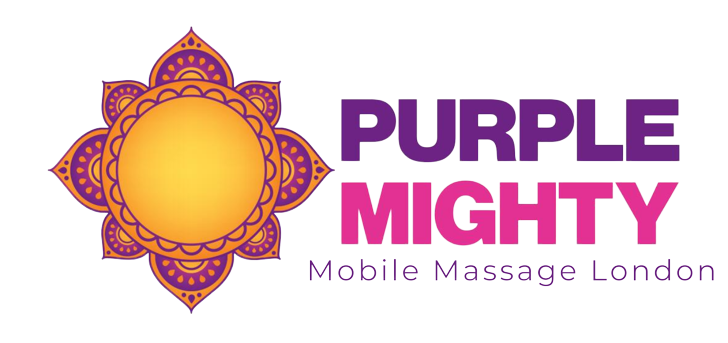Have you ever wondered why you feel sore after a massage session? Post-massage jitters: are they a blessing or a curse? Let’s find out in this article. Stick around until the end to make your massage experience a blissful one
Why Do You Feel Sore After a Massage?
Post-massage soreness is influenced by various factors. It is mainly your body’s reaction to the new changes happening inside the organs. Some external factors like dehydration, stress and poor posture can also contribute to post-massage soreness.
Post-massage soreness is a common issue and it typically subsides within a day or two as the body heals and adapts to the treatment. However, It’s essential to communicate with your massage therapist about your preferences and any discomfort you experience during the session to ensure a positive and beneficial experience.
What Happens During a Massage?
Massage therapy involves a variety of therapeutic techniques aimed at targeting areas prone to tension, with a focus on reducing stress and muscle tension by releasing knots in muscle fibres and soft tissue.
These techniques, ranging from mild to intense, provide significant benefits to the body. By restoring muscle memory and alleviating pain, they enhance blood flow and the distribution of nutrients and oxygen to areas affected by chronic stress. Additionally, massage helps break down acids in the muscles to provide energy and aims to remove toxins from the body.
While massage therapy can effectively transform the body, it’s common to experience discomfort or soreness afterwards as the body adjusts to its new regimen.
What Causes Post-Massage Soreness?
Muscles Manipulation:
Normally massage techniques involve manipulation of muscles and soft tissues. The manipulation and pressure employed during a massage session can cause tiny tears and damage in the connective tissues and muscle fibres. Your body activates several chemical signals to promote inflammation. So you are likely to feel soreness or discomfort during this healing process.
Release of Toxins
One of the myriad benefits of massage therapy is mobilising fluid movement and discarding metabolic waste products. To facilitate this, therapists often target particular trigger points to stimulate the lymphatic process. You may feel jittery or sore at the release of toxins from the muscles into the bloodstream.
Increased Blood Flow:
Chronic stress can accumulate in specific areas of the body and disrupt the smooth circulation of blood and nutrients to the muscle fibres. Massage therapy aims to alleviate this disruption and promote better circulation. As your body reacts to embrace the new flow of blood and energy into these previously neglected areas, it may experience soreness.
Intense or Poor Massage Techniques:
The perceiving level and the response of individuals to different massage techniques and modalities may vary. Intense application of pressure and techniques can cause discomfort to certain people as it can result in overstimulation and heightened pain perception.
Improper incorporation of massage techniques may strain the muscles, tendons and ligaments. Strained muscles can manifest soreness.
Dehydration:
Proper hydration is essential for optimal body function during a massage and supports the profound goals of massage therapy. Hydration can accelerate the lymphatic process and promote circulation. When the body is not adequately hydrated, you can feel sore or discomfort during these procedures.
Is it Good to Feel Sore After a Massage?
Post-massage soreness is a typical response of your body after being subjected to physical manipulation. It may last the first 24-48 hours following a massage session and is often described as similar to the soreness experienced after a workout.
However, the goal of massage therapy is conferring rejuvenation and a blissful experience, so if the soreness is severe or persists for a longer period, then it signals that the massage has adversely affected the function of your body. In these cases, it is crucial to take immediate medical care.
Is it Good to Massage Sore Muscles?
It is highly recommended to massage sore muscles as it helps to manage discomfort, induce preparation and promote overall well-being.
However, to prevent aggravating any current pain or injury, it’s crucial to employ the right techniques and pay attention to your body’s signals. Before starting any massage therapy programme, it is advisable to speak with your massage therapist or healthcare provider if you have any concerns or underlying health conditions.
How Can You Alleviate Post Massage Soreness?
The following tips can help you mitigate post-massage soreness effectively:
- Integrate gentle techniques to warm and relax the muscles at the beginning and the end of the massage session. Engaging in meditation and employing mild stretch techniques can help beginners to ward off post-massage agitations.
- Take a shower or warm bath with Epsom salt as it contains the property to reduce inflammation.
- Drink plenty of water before and after a massage session.
- Avoid engaging in any bodily activities immediately after a massage.
- Improve your sleeping pattern. Sleep at least 6-8 hours to relax your muscles.
- You may take pain relief pills or apply ice packs to your muscles to alleviate soreness and discomfort.
Conclusion
Post-massage soreness is a natural response to massage therapy, but it’s essential to pay attention to the body’s signals and seek medical attention if soreness persists or becomes severe. Effective communication with the massage therapist, adequate hydration, and appropriate self-care measures can help optimise the massage experience and promote overall well-being.


